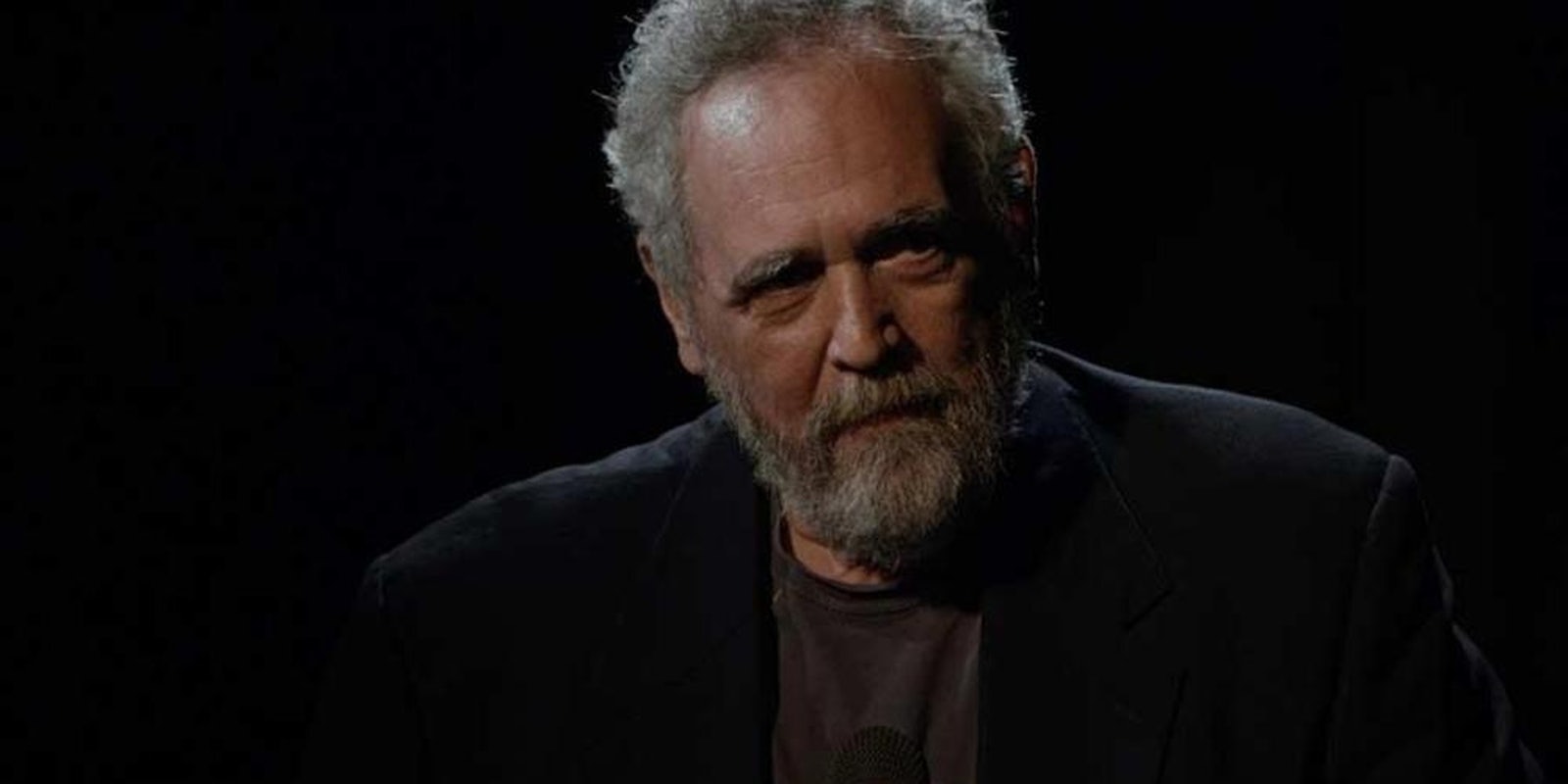It’s fitting that new documentary Call Me Lucky is debuting just as Jon Stewart leaves The Daily Show. Earlier this week, Stewart poked fun at how he’s “eviscerated” corporations, media, and political systems over the last 16 years, but Barry Crimmins was doing it decades before him.
Call Me Lucky, which hits select theaters Aug. 7, tells the story of Crimmins, a comedian and activist who rose to prominence in the wake of Reagan. In his ascent into the ’80s Boston comedy scene, where he booked formative club Ding Ho and later Stitches, he swept up another young man from upstate New York, Bobcat Goldthwait, and gave him a stage. Three decades later, Goldthwait is giving Crimmins one.
This is Goldthwait’s first documentary film after a string of bleakly funny features like World’s Greatest Dad and God Bless America. Goldthwait initially wanted to cast a film about Crimmins’ life, but his good friend Robin Williams, a fan of Crimmins’, encouraged Goldthwait to instead approach Call Me Lucky as a documentary. He says Williams donated money to the film in early 2014 to get the ball rolling, and filming started quickly after that.
The first half of Call Me Lucky focuses on Crimmins’ influence in the comedy world, and features a chorus of praise from the likes of David Cross, Margaret Cho, and Marc Maron. Crimmins tells the Daily Dot he got into comedy because “I had to turn several years of being a screw-up into research.”
However, Goldthwait says the idea for the film originated in the mid-’90s, after Crimmins testified before a U.S. Senate judiciary committee in 1995.
As we’re told in the second half of the film, Crimmins is a survivor of sexual abuse. While trying to find support groups in the early ’90s, Crimmins stumbled upon AOL’s very active pedophile chat rooms. This was the wild west of the Internet, where chat rooms and communications in general were largely unregulated. Crimmins started gathering evidence of the images being exchanged and the people providing them and notified AOL, but he got the brush-off.
The film provides footage of Crimmins testifying and laying into an AOL executive, stating, “There is a major crime wave taking place on America’s computers. The proliferation of child pornography trafficking has created an anonymous pedophile superstore.”
After his testimony, AOL was forced to change how it dealt with child pornography, and a new initiative was created to crack down on its proliferation—one that’s still in place today.
“It just had every element of a Frank Capra story,” Goldthwait said. “… And at that time I think I’d just made one movie, Shakes the Clown, probably. But I’d always wanted to turn that story into a movie.” Goldthwait asked Crimmins to write a screenplay, but says he declined because it was “all fresh for him.”
The lead-up to Crimmins’ revelation that he was sexually abused is steep, and perhaps a tad dramatic. Still, there’s a certain relief when we finally get to see what’s framed as the source of Crimmins’ anger and rage, elements that came to define his comedy. In a 1982 interview, parts of which are shown in the film, Crimmins says, “Everyone should just treat each other well, because there’s a lot of pain out there. And comedy has nothing to do with alleviating it. It’s just a distraction.”
However, he said it didn’t take much for him to get on board with the film.
“I’m really into shattering the complicity that perpetrators of these crimes try to impose,” Crimmins said. “I wasn’t complicit in those crimes.” He adds that the film being a documentary “took a lot of the ego stuff [out of it]—which Hollywood actor is playing me? And, you know, Larry Storch was unavailable.”
While we get a parade of peers gushing about Crimmins’ fearless comedy, that flow could have been turned down a bit in favor of more face time with Crimmins, more of a look into how he got into comedy, more footage of his live sets for context, or more time with his family. And yet, Call Me Lucky wouldn’t have half the heart it does if not for the decades-long relationship of Crimmins and Goldthwait. There’s an ease between the two old friends, one necessary when approaching subject matter this dark.
They’re also looking forward: Goldthwait jokes that there will definitely be a sequel, titled Call Me Greedy.
While Crimmins doesn’t do standup as much these days, he’s appeared on Marc Maron’s WTF podcast, and his feelings about the Catholic Church—which are expressed quite heartily in the film—have not changed. However, he’s developed quite a relationship with the Pope on Twitter.
I’m sick of asking but won’t stop until you excommunicate me. @Pontifex
— Barry Crimmins (@crimmins) August 5, 2015
I haven’t been to mass in 44 years — I’ve earned and deserve excommunication. Please put on your silly hat and make it happen @Pontifex
— Barry Crimmins (@crimmins) August 2, 2015
Call Me Lucky reinforces just how essential comedy is to some people in channeling pain and anger. But it also shows how that pain and anger can become truth—and how it can change a life.
Photo via MPI


